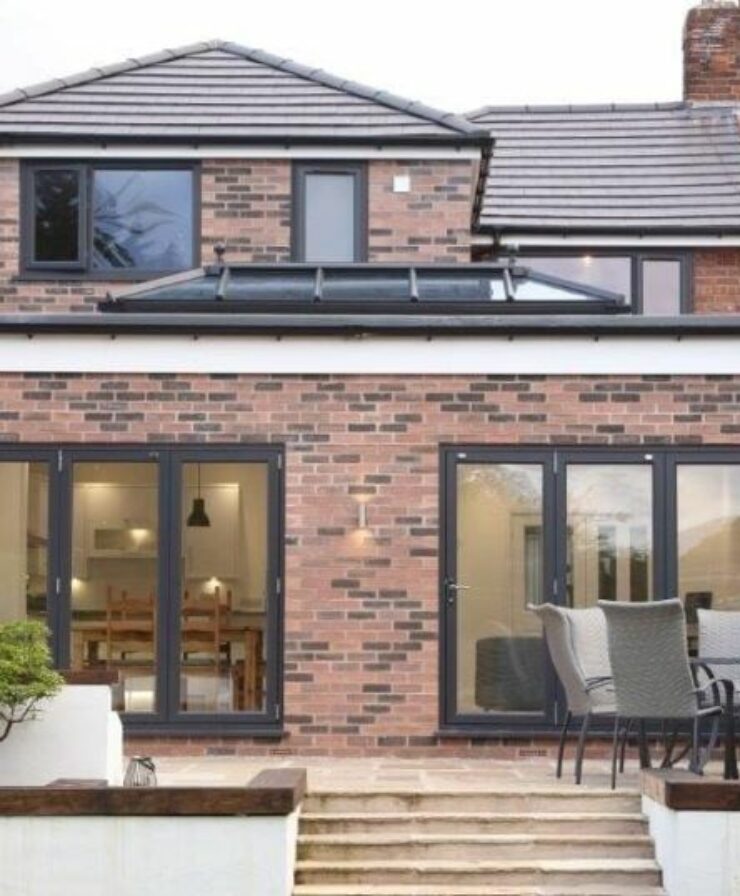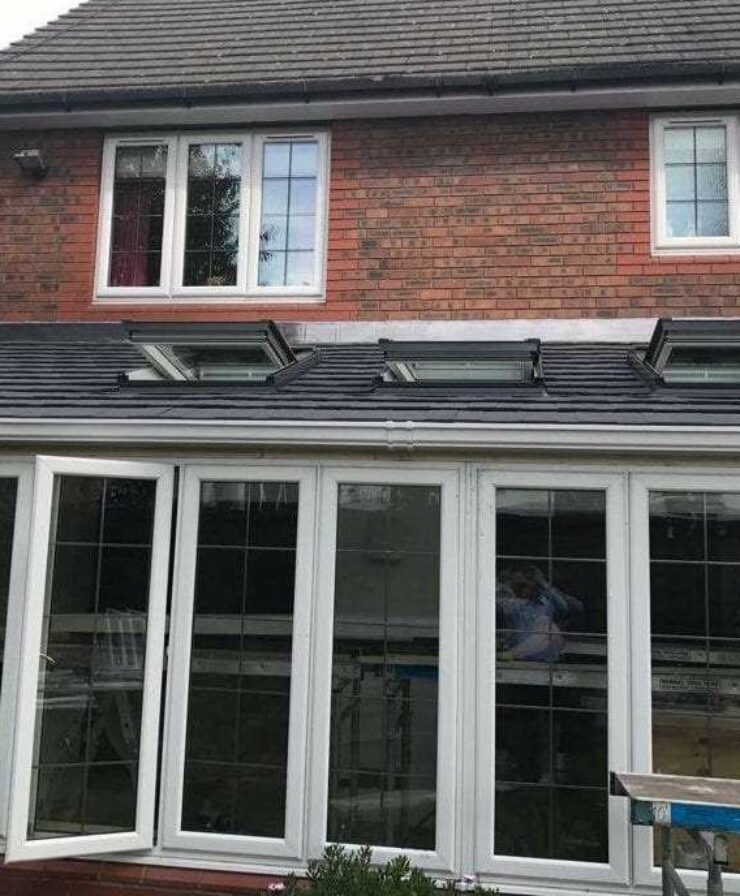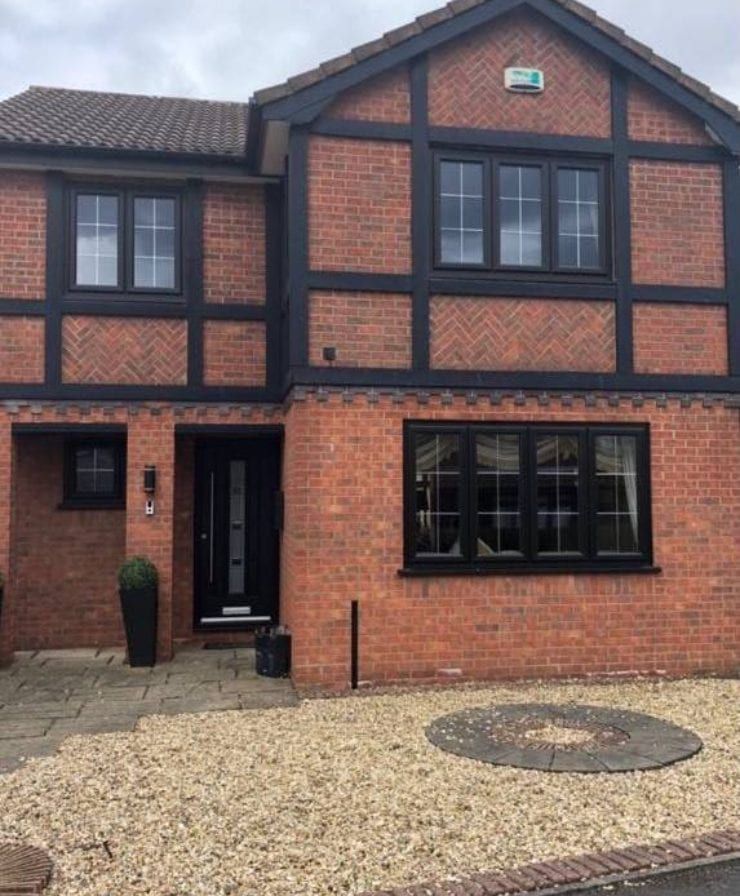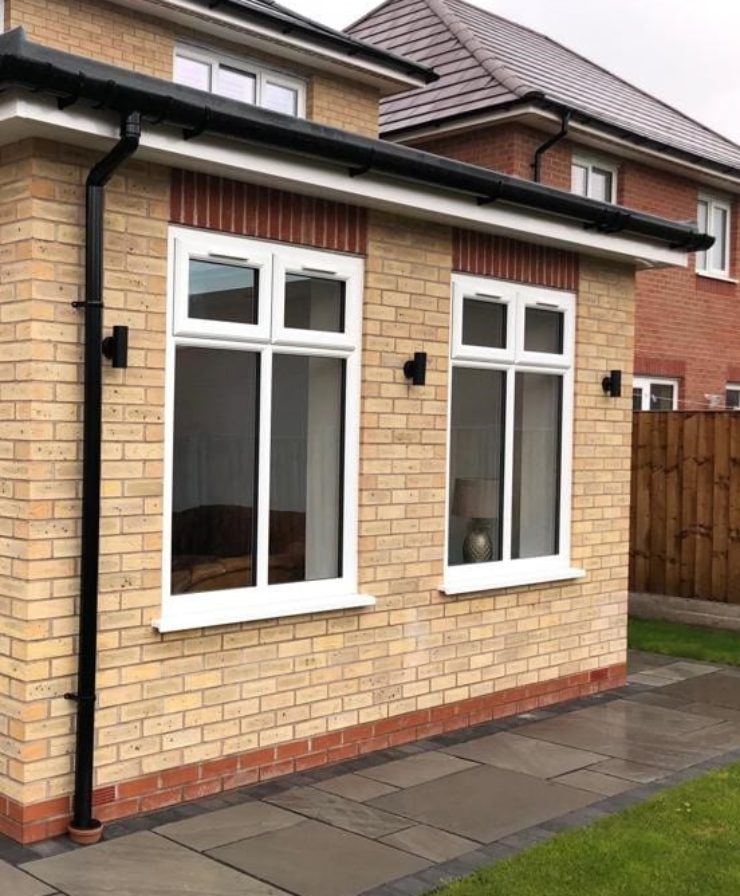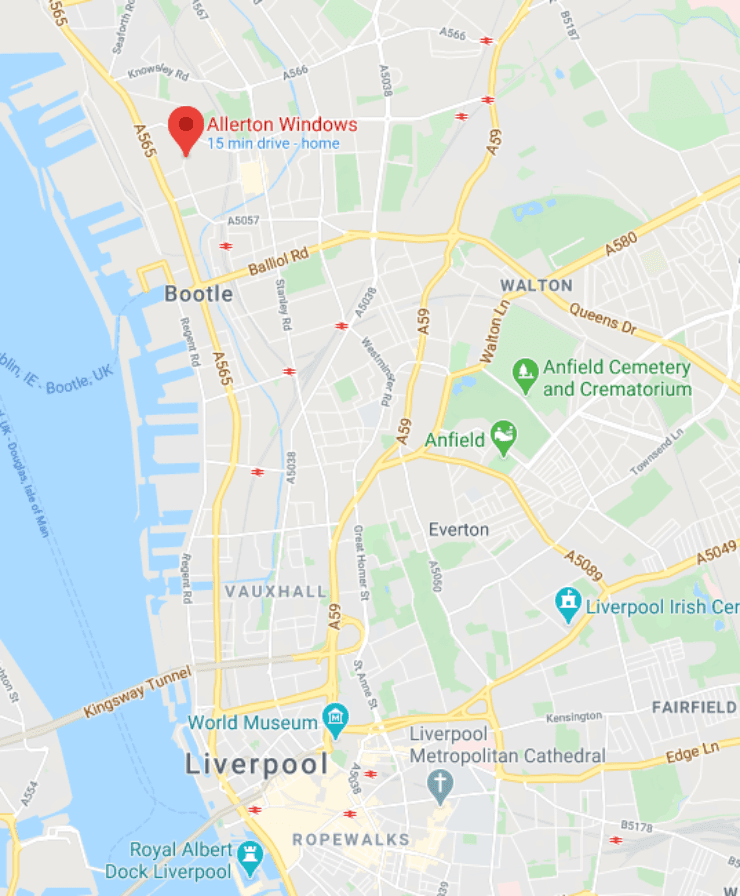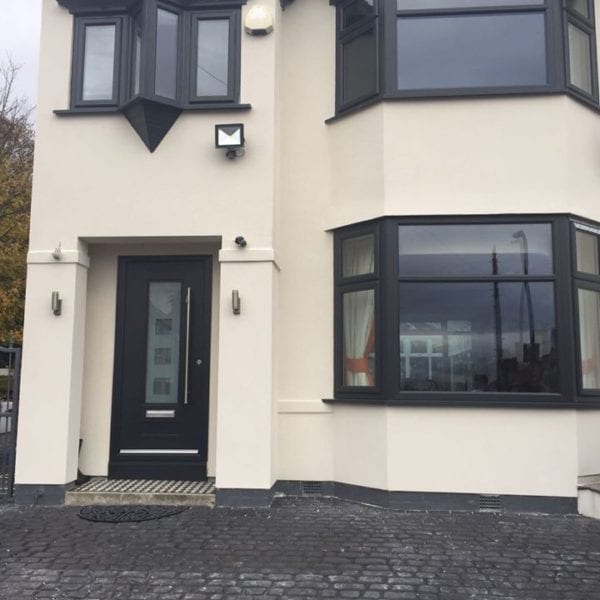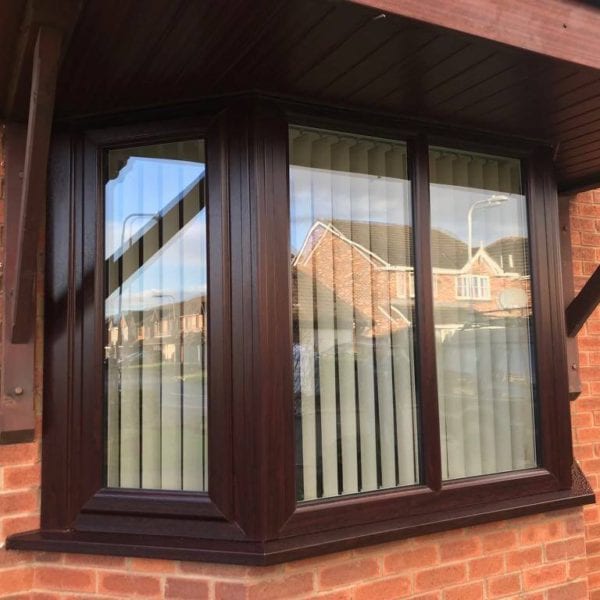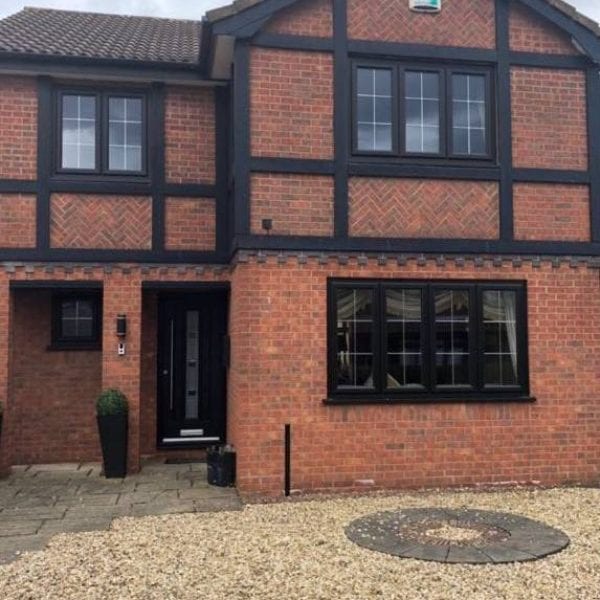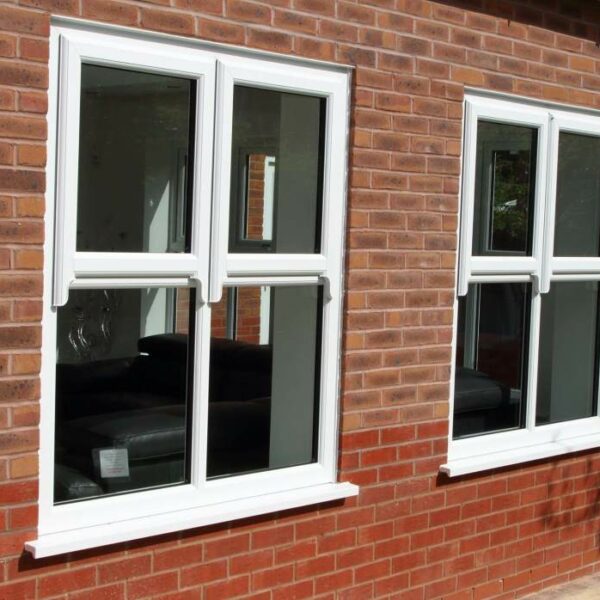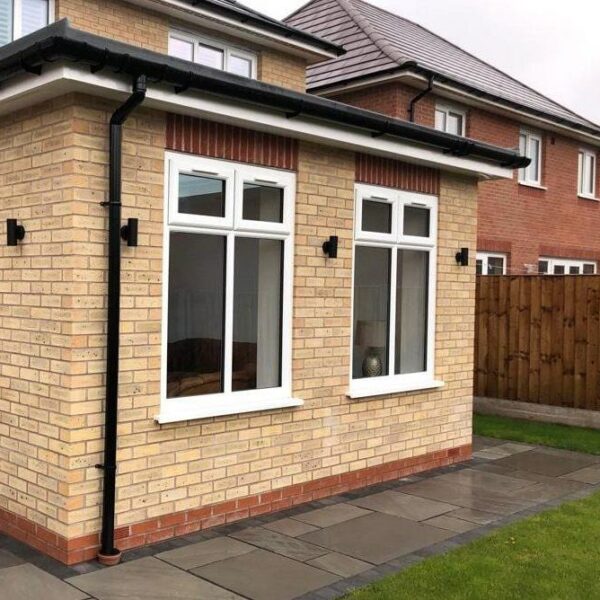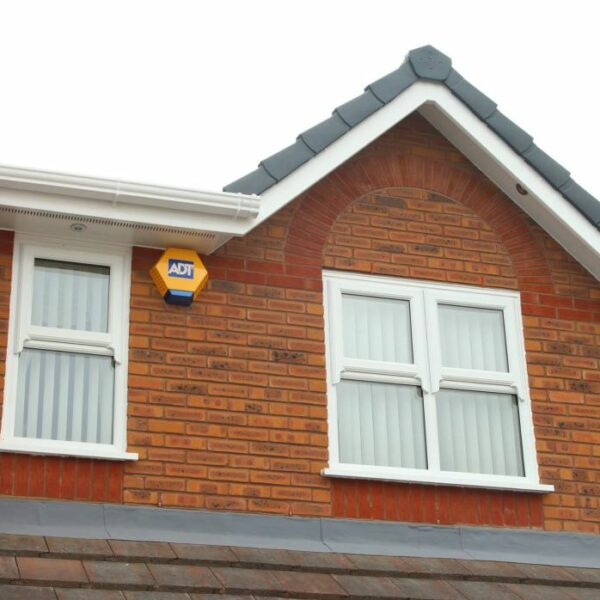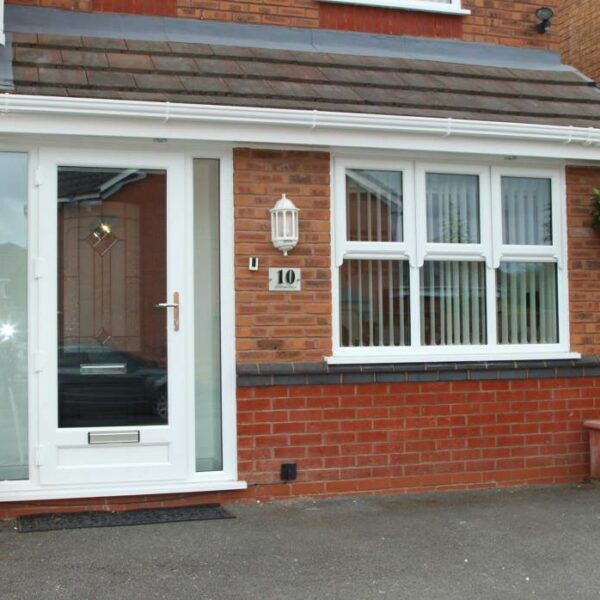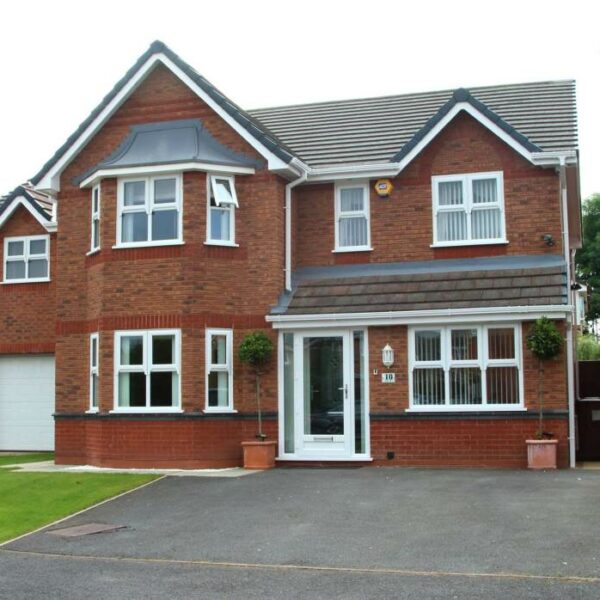All of our designs and installations are completely unique and based on your preferences. This means prices can change when it comes to colour, style and other modifications such as handles.
As a guideline, our double glazing windows start from £550 per window. We also offer a free Composite or French Door worth up to £1,800 when you opt for a full house refresh on your windows.
Double glazed windows are fittings manufactured with hard-wearing unplasticised polyvinyl chloride that use two panes of glass instead of one, with a layer of argon gas designed to keep your home more energy-efficient. These windows are now widely fitted in new homes thanks to their long-lasting properties, easy maintenance and excellent heat insulation. Styles and designs can vary greatly, including wood-effect patterns and modern colour palettes.
Although long-lasting, double glazing does eventually need to be replaced when it is no longer performing its task of insulating the home. Clear sign of wear, such as warped windows or discolouration, are an indication that might be time to fit replacements. Unusually high energy bills and noticeable drafts can also be clues that your double glazing is no longer up to scratch.
Double glazing improves heat insulation, increases home energy efficiency and also reduces sound from outside. The gap between the two panes of glass is not sealed as a vacuum. The purpose of double glazing is to reduce the heat transfer process that takes place between the interior and exterior of a home. The air in this gap is dried, and argon is used as further barrier for heat transfer. The inner pane of glass acts as further protection to heat loss and also helps reduce sound infiltration.
Resealing double glazed windows can be done by the original installers, however, this process does not guarantee efficiency and will not provide the same longevity that replacement windows will. Fully replaced double glazed windows will come with warranties, guaranteeing the work and materials used for the job.
Installing double glazing could lead to yearly savings of £120-155 for detached homes, £80-110 for semi-detached homes, £65-85 for mid-terrace homes and £50-70 for bungalows, according to government estimations based on typical gas heating costs.
Depending on the build quality of the window, weather conditions and the degree to which they have been maintained, double glazing can last over 20 years. The lifespan of double glazing can be extended by regular maintenance, including wiping down with soapy water and keeping the hinges and mechanisms well oiled.
Secondary glazing is considerably cheaper than double glazing, however it is much less efficient and does not offer the same sound and heat insulation. Although working with a similar concept, no seal is used in secondary glazing, which means that there is no difference in air pressure between the two panes of glass, leading to easier heat transfer. Whilst secondary glazing is considerably quicker to install, it does not provide the same benefits as double glazing.
All of our double glazing prices are dependant on the size of the frames, their design, materials and our estimation on how long it will take to fit. The best way to get a price for new windows is to get in touch with us (by email or phone), or better still, visit us in our showroom so we can walk you through your options.
UPVC is the material used to make the windows, unplasticised polyvinyl chloride. It is a strong but lightweight and low-maintenance material perfect for keeping the warm air in. UPVC is a great substitute for painted wood and a cheaper alternative to timber or aluminium. This is why uPVC windows are often found with a wood grain effect. Choose your uPVC windows from a wide range of styles to suit your home, and then trust our experienced team to manage the project with minimum fuss.
UPVC is a robust, rigid material to choose for your windows. UPVC windows are very secure as they incorporate multi-locking systems all around the sash and frame providing a high level of security for your home. The secure frames and unique locking system provide the necessary strength to make it tough for anyone to break in and they are not easily messed with.
Double-glazed uPVC windows are resistant to impact and it would take a real effort to break them. This is also true of triple-glazed uPVC windows, for added protection and thermal resistance.
Whilst it is possible to do so, we don’t recommend that you attempt to fit them yourself. It wouldn’t be prudent to spend hundreds of pounds on new uPVC windows, to then risk compromising the security of your home by installing them on your own.
Our professional workmen are here to measure up and fit your new uPVC windows, to guarantee the outstanding security that you’ve paid for.
Fortunately, uPVC windows are super easy to clean. If the inside of your uPVC windows gets a little grubby or dusty, all you need is a damp cloth and some washing-up liquid! A proper wash of the exterior side twice a year is sufficient enough to keep your new uPVC windows gleaming. We also recommend keeping the latches, hinges, drain holes and tracks free from debris with a little dust now and again.
UPVC windows are the cheapest option when it comes to refreshing your home. The robust, durable material can easily last a lifespan of 20 to 35 years when taken good care of. This is why uPVC windows are such a worthwhile investment. Not to mention, the wide variety of features, colours and styles available to make your home unique to you.
Whether you’re looking for a classic casement style, bolder bay window, sleek sash style or an orangery upgrade we have a wide range to choose from.
Take a look below for design ideas and inspiration for your home’s new look.
Whichever style of window that you opt for, we’ll ensure that your new windows are made-to-measure, guaranteeing the very best fit.

